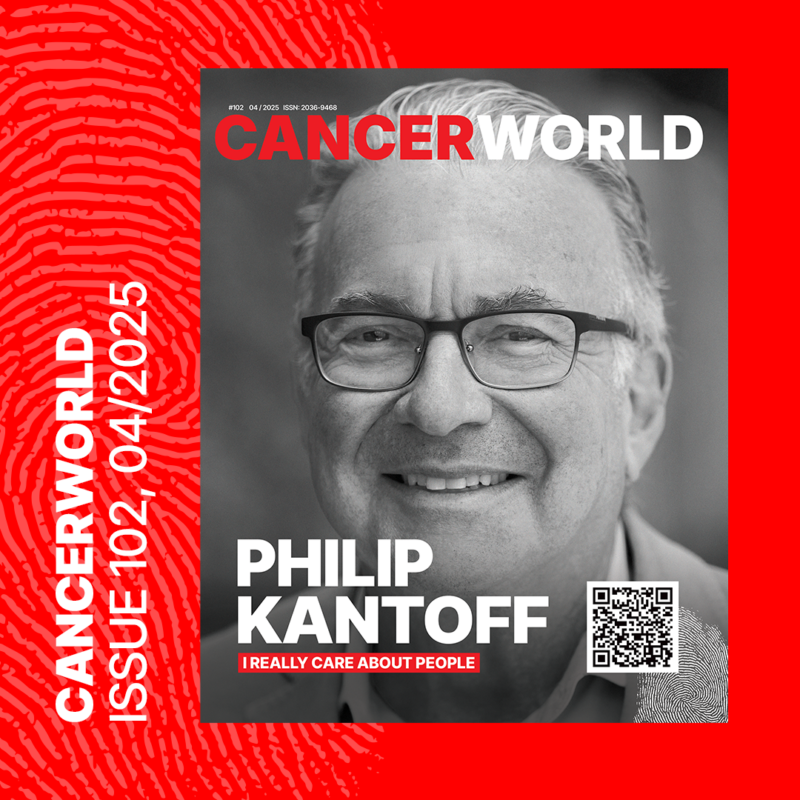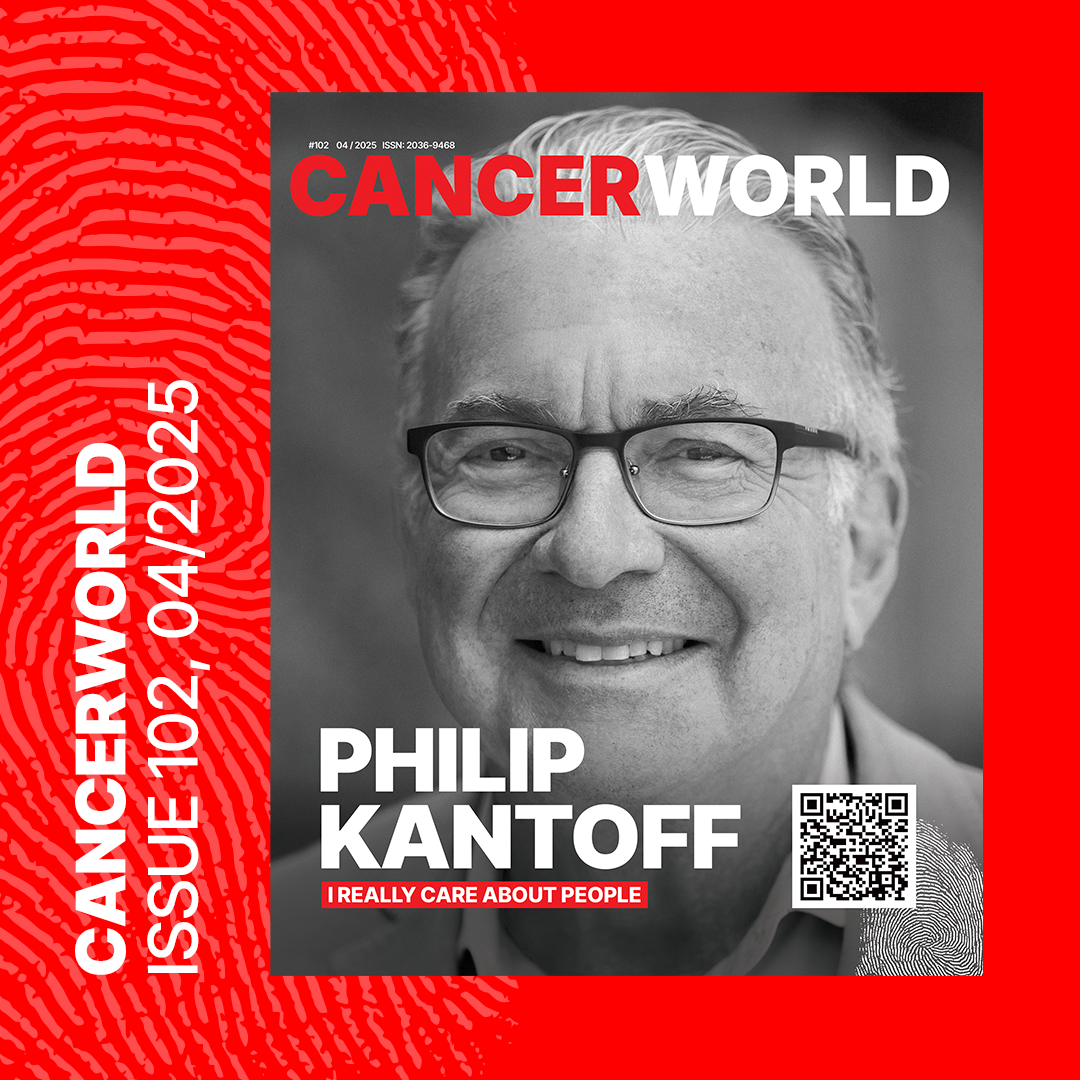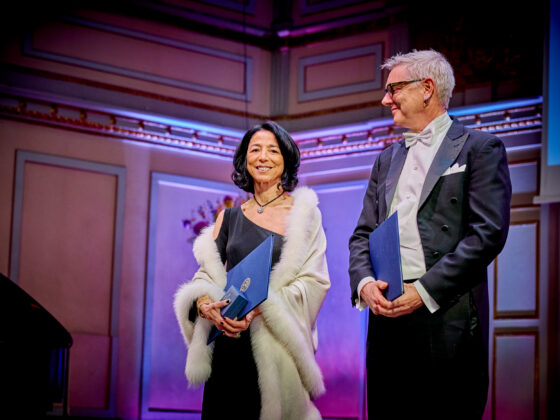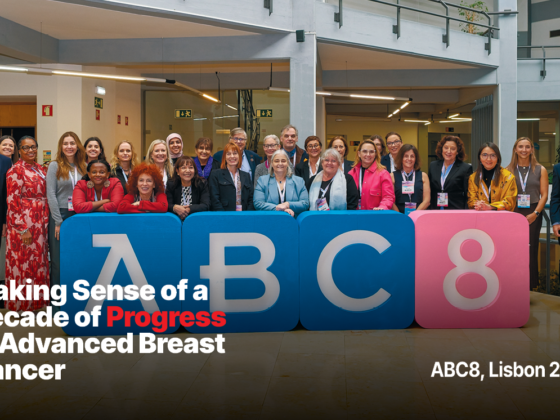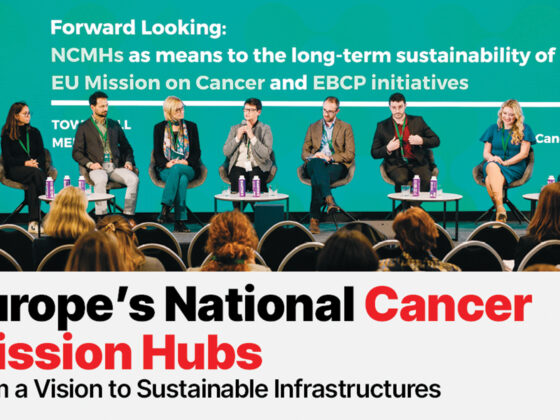“I wanted to be a scientist when I grew up.”
Boston. The city where old bricks and new ideas stand side by side. Where science, education, and innovation breathe together. The wind cuts through the streets of New England, sharp and relentless. If I were fifty pounds lighter, it might carry me away.
Dr. Philip Kantoff waits for me in a café next to his office. He wears a vest with the Convergent Therapeutics logo. The elevator took us to his office. The glass windows behind him open to the landscape of downtown Boston. The skyline watches over a man who has spent his life changing the course of cancer treatment.
The fight against cancer has been long. He has been in it from the start—twenty-eight years at Dana-Farber, leading genitourinary oncology and solid tumor oncology; then Chair of Medicine at Memorial Sloan Kettering. He has built teams, mentored leaders, driven research, and changed the way prostate cancer is treated.
Now, he sits here, in Boston—the city where breakthroughs happen.
The city where he still shapes the future of cancer care. But long before he became one of the defining figures in modern genitourinary oncology, he was just a young man who loved science.
“I was in high school when I first got intrigued by genetics,” he begins. “I spent summers doing research. I wanted to be a scientist when I grew up.”
That passion for science led him down an unexpected path.
“My college interviewer at Brown University asked me why I wasn’t applying for the seven-year medical program,” he recalls. “I hadn’t really considered it, but I thought—why not?”
So, he applied. He got in. And without realizing it at the time, he took a path that would shape his future in medicine and greatly contribute to the progress of oncology.
From Brown to the NIH
Brown University became his academic home. He spent seven years in Providence, Rhode Island—four in undergraduate studies, three in medical school—immersing himself in science and medicine.
Then came residency.
“I did my residency in internal medicine at NYU Bellevue in New York,” he says.
But medicine alone wasn’t enough. His love for research pulled him back to the lab.
“I wanted to go back and do research,” he explains. “So, I went to the National Institutes of Health and worked on gene transfer, gene therapy, using retroviral vectors.”
It was a transformative experience.
“I was involved in cutting-edge research. It was an incredible time in my life.”
Then came the next step—fellowship.
“I applied for fellowships and decided to go to Dana-Farber,” he says. “My intention was to be there for a short time and then move on to a career as a basic/translational scientist.”
But life had other plans.
28 Years at Dana-Farber: A Legacy in Oncology
The short stay at Dana-Farber turned into nearly three decades.
“I never imagined working in genitourinary oncology,” he admits. “But the person running the program had left, and they needed someone to take over. It was an opportunity.”
So, he took it.
At first, he was just learning. Then, he opened a laboratory. Then, he started running clinical trials.
“I was very fortunate because medical oncology fellows wanted to work with me after their first year of fellowship,” he says. “When that happens, your program expands, and you can do more.”
More meant publishing groundbreaking research. More meant leading large clinical trials. More meant securing major grants—millions of dollars to push prostate cancer research forward.
One of the defining moments of his career came when he secured a SPORE grant.
“It was a very large grant,” he recalls. “It brought all the institutions at Harvard together around prostate cancer. It was a productive time for me.”
Soon, his responsibilities grew beyond research.
“I took on a more administrative role,” he says. “I became the head of solid tumor oncology. Then, the Chief Clinical Research Officer at Dana-Farber.”
But the biggest challenge was yet to come.
New York, New York
In 2014, Memorial Sloan Kettering Cancer Center made an offer: they wanted him to become Chair of Medicine.
“It was a heavy administrative role,” he says. “But I took it on in 2015.”
For six years, he oversaw a department of 500 faculty members. It was a massive undertaking.
“I maintained a small clinical practice,” he says. “But I was mostly focused on leadership and research.”
Then, in 2021, life shifted again.
“I got married and decided to move back to Boston,” he says.
And with that decision, he made another one: he would start something new.
A New Challenge: Building Convergent Therapeutics
Starting a biotech company was a different kind of challenge.
“In 2021, it was just me and a couple of other people,” he recalls. “It was called Convergent Therapeutics. My old friend Neil Bander was still at Cornell, but he joined as Chief Scientific Officer.”
The mission? To create radioantibodies—targeted treatments for prostate cancer.
They focused on a specific protein: prostate-specific membrane antigen (PSMA).
“Our approach was to take an antibody and link it to actinium-225, an alpha-emitting radionuclide,” he explains.
“Alphas are much more powerful than other types of radiation because they’re large helium nuclei,” he continues. “They have a short path length, so you can deliver very precise radiation without a lot of collateral damage.”
Before Convergent even existed, studies were already underway at Cornell, where Bander and Scott Tagawa, a leading medical oncologist, were testing the J591 antibody linked to actinium-225—what would later become CONV01-a.
The results were remarkable.
“In the first experiment, a single dose of CONV01-a was given, and 45% of patients responded,” Dr. Kantoff says. “Their PSA levels dropped below 50%, and some had durable responses. Then, in a multi-dose experiment, the responses were even more impressive.”
But running a biotech company came with steep learning curves.
“I knew medicine and science. I knew leadership,” he says. “But I had to learn finance, fundraising, manufacturing, and regulatory affairs. It was a completely different world.”
Yet, as always, he adapted.
Convergent’s flagship study, CONVERGE-01, is now treating patients at two critical points in their cancer journey:
First, after treatment with Pluvicto, a small-molecule beta emitter targeting PSMA, when no clear next step exists.
Second, before Pluvicto or chemotherapy, to see if earlier intervention can drive better outcomes.
“So far, things are going extremely well,” Philip Kantoff says. “We’re accruing patients, we’re not encountering any problems, and we’re seeing good activity.”
For a physician who has spent decades advancing prostate cancer research, the move into biotech represents a new chapter—one with potentially game-changing implications.
“Mentors Who Shaped Me”
Throughout his career, Dr. Kantoff had many mentors.
“My first inspiration was my 10th-grade biology teacher,” he recalls. “He had so much energy and inspired a lot of us to go into science.”
At Dana-Farber, some of the biggest names in oncology helped guide him.
“George Canellos, Robert Mayer, and Thomas Frie were mentors of mine at Dana Farber,” he says. “These were giants in the field of oncology. They gave me opportunities, encouraged me to do research, and taught me how to care for patients.”
“I worked in the Molecular Hematology laboratory at the NIH,” he explains. “He was involved in gene transfer and gene therapy. I spent four years as a postdoc learning how to approach science at the highest level.”
“I’ve learned a lot from a lot of people along the way, and I think I’m a good listener and observer of other people. I like to surround myself with people who are very talented, who are smarter than I am, that I can learn from.”
“I don’t tell people what to do.”
In 2024, Dr. Kantoff received ASCO’s Teaching Award.
“It was a great honor to be recognized for my mentorship of very talented people I have worked with”, he says.
Mentorship has been one of the most rewarding aspects of his career.
“I’ve had so many talented mentees,” he says. “Levi Garraway, now Chief Medical Officer at Roche Genentech. Bill Sellers, who was head of oncology at Novartis. Matthew Smith, William Oh, Daniel George, Mary-Ellen Taplin to name a few—so many brilliant and talented people.”
“I’ve gained as much from the people that I’ve mentored as they’ve gained from me. So, it’s got to be a two-way street with mentorship,” he reflects.
But for him, mentorship is about guidance, not control.
“I don’t tell people what to do. I tell them what not to do,” he says. “I create opportunities and let them grow.”
“Advice for Young Oncologists”
For those starting a career in oncology, Dr. Kantoff offers clear advice.
“Find what you’re most passionate about,” he says. “The field of medicine has so many opportunities. But the fundamental core of being an oncologist is compassion—taking care of patients. The medicine part, while remaining challenging, is something you can master. But every patient is unique. Every patient is going through one of the hardest moments of their life.”
He also warns against losing the human side of medicine.
“With all the advances in AI, some say doctors may no longer be necessary,” he says. “But nothing can replace the human touch, empathy, and compassion in oncology. Understanding what people are going through. Walking into a room and making a connection. Being a source of guidance and comfort.”
“Advice for People Starting a Biotech”
For those launching biotech startups, his advice is simple.
“Hire the right people,” he says. “In academic medicine, we understand science and medicine, but biotech is a different world. You need experts in finance, regulatory affairs, and manufacturing.”
And patience is key.
“Building a biotech is a long game,” he adds. “It’s about managing complexity—raising money, running trials, scaling up. It’s not for the faint of heart.”
The Future of Cancer Treatment
What excites him about the future of oncology?
“Radiopharmaceuticals,” he says without hesitation. “We’ve only scratched the surface of what can be done with targeted radiation.”
Immunotherapy is another major frontier.
“Checkpoint inhibitors have been a game-changer,” he says. “But there’s so much more to uncover in harnessing the immune system against cancer.”
Outside of work, Dr. Kantoff enjoys the simple things.
Outside of work, Dr. Kantoff enjoys the simple things.
“I love my family,” he says. “I have four children. Aaron manages a biotech venture fund. Emily is a psychiatric nurse practitioner. She works at UCSF’s cancer center, helping patients deal with the psychological impact of their disease. Sydney oversees a team that manages the culture, events and space for a large public advertising tech company. My stepson, Ethan, is finishing college at Bowdoin and is studying in Australia.”
His wife, a prominent epidemiologist at Harvard, Prof. Lorelei A. Mucci, has been a research partner for years.
“We’ve worked on many projects together,” he says.
And then, there’s cooking and tennis.
“I love to play doubles,” he says. “I used to play basketball, but my body can’t take it anymore. Tennis is my game now.”
Music has always been a part of his life, too.
What’s Next?
Dr. Philip Kantoff has spent a lifetime learning, leading, and innovating. And he has no plans to stop.
Because for him, the work is never done. The discoveries are never over. And the next breakthrough is always just around the corner.

